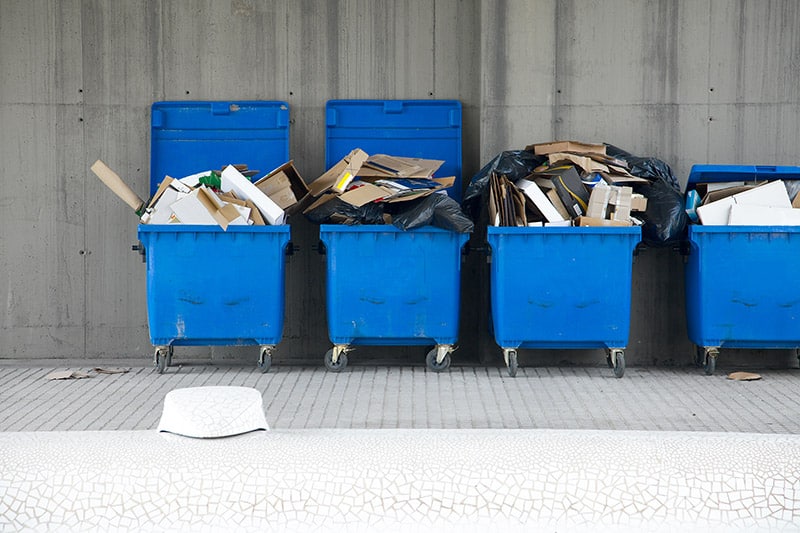 Dumpster diving is a fad that’s increasing in popularity across America.
Dumpster diving is a fad that’s increasing in popularity across America.
It sounds like what it is: searching for useful items discarded in dumpsters. But, typically, it’s a lot less icky than you may imagine. The professionals scope out retail dumpsters, where they can find unopened makeup, untouched food items, and other perfectly fine treasures.
This practice is becoming increasingly popular, and not just among the desperate. For many, it’s a thrifty and environmentally conscious hobby. But over all of this hovers one question–is it legal?
What Does the Law Say About Dumpster Diving?
US law states that dumpster diving is legal, because in most cases when an item enters a garbage bin, it’s now public domain. However, laws vary from city to city.
Many dumpsters are on private property, often enclosed with a fence or marked “No Trespassing.” Garbage picking in such a dumpster could result in getting ticketed or even arrested.
Other legal issues you may face are not directly related to dumpster diving but tend to come with the territory. Police often charge garbage pickers with disorderly conduct or littering. Usually, police only get involved when responding to a call from a resident or store manager. If the diver leaves the scene without a fight, and without leaving a mess, they usually don’t face charges.
More Grey Areas With Dumpster Diving
Some cities treat dumpster diving on foot differently than doing so in a vehicle. Since certain recyclables can be collected and exchanged for cash, it’s assumed that you’re loading your vehicle full of these goods. For the same reason, these communities may consider taking items from a recycling bin to be thievery.
Another issue is that dumpster owners worry they will face a lawsuit. If a diver injures themselves or falls ill after eating food from the dumpster, those trash pickers could sue. For those reasons, those responsible for dumpsters may press charges if they catch you diving.
Do Your Research Before You Dive
At the end of the day, is dumpster diving illegal? While the general answer is no, U.S. towns and cities do have the ability to outlaw dumpster diving in that municipality.
Research the topic in your area to see if you live in one of these towns. Dumpster owners or renters who wish to keep others out of their garbage are able to place their dumpster on private property and hang the appropriate signage to warn potential divers.
Resources for Business Owners and Other Dumpster Users
Restaurant or food store managers can donate unsold food instead of throwing it away. The Good Samaritan Food Donation Act protects donors from liability when donating food near its expiration date to a non-profit organization. There is even a free cafe in operation that serves dumpster finds!
If you have specific questions about renting a dumpster, visit our frequently asked questions page.